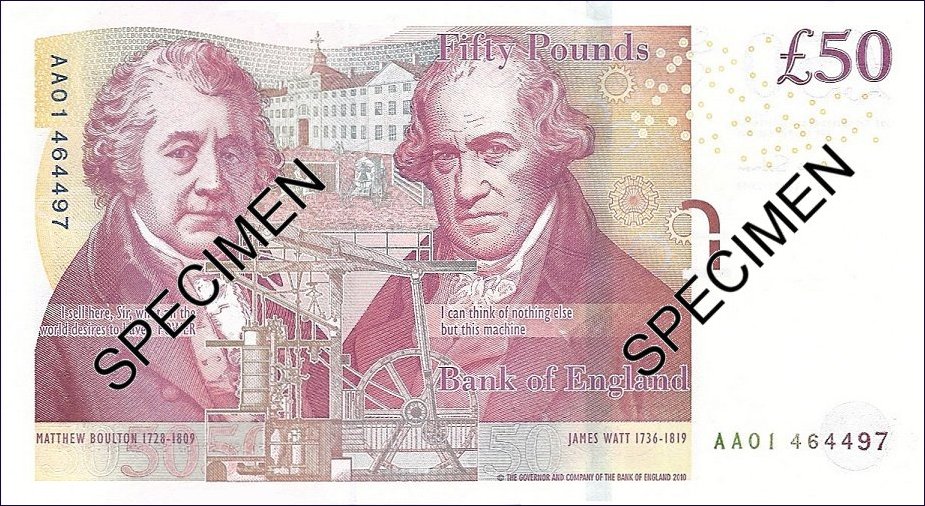England has chosen to withdraw paper money by polymer
There are already several countries that have chosen to withdraw the paper note to manufacture polymer banknotes: New Zealand, Mexico, Singapore and Canada. The last to join in this trend has been England. The reasons being that in these countries they are able to save in the long term as there is no need to keep renewing notes, as they are more durable. They are resistant to dirt and moisture and it lasts up to 2.5 more times than the paper banknotes confirmed the vice president of the Bank of England, Charlie Bean.
However, although a change in the material, the design and the size of the notes will remain the same: "it will remain the same size scale, by which the higher denominations are larger, and will continue to show the effigy of the Queen of England and universally recognized personalities" stated C. Bean.
It is anticipated that the first note to be issued will be the 5 pounds note in the year 2016, which will be represented by the well-known face of Winston Churchill, the second polymer note will be the 10 pounds with the image of Jane Austen in the year 2017. Although to accomplish the change the citizens must be in favor (the Bank of England has organized several presentations during the next few months to collect views and opinions and run only in the event that the citizens agree).




